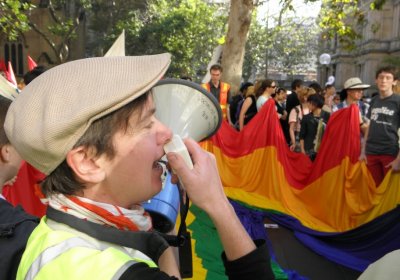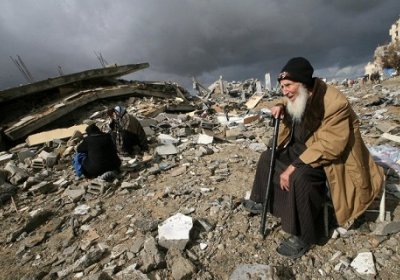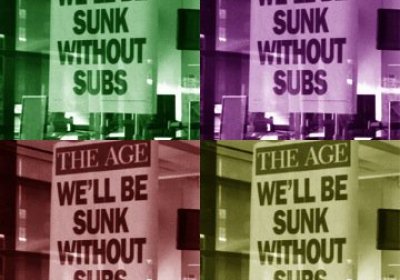The formation of the Mana Party in April marked a “major step forward for a genuine working-class political voice” in New Zealand, the national director of the Unite Union and Mana party member Mike Treen told Links International Journal of Socialist Renewal.
The Mana Party was formed at a 500-strong conference on April 30. It was called by Hone Harawira, MP for the Maori electorate of Te Tai Tokerau.
At the conference, Harawira announced his resignation from the Maori Party and his re-election campaign as a member of the Mana Party in a by-election.
881
Resistance held its 40th national conference on the weekend of May 6 -8. One-hundred-and-fifty people came over the three days and took part in diverse workshops and panel sessions.
One major session featured Matthew Cassel, former assistant editor of Electronic Intifada and an independent journalist, gave an eyewitness account of the overthrow of Egyptian dictator Hosni Mubarak.
He said: “Something common among dictatorships in the Arab world and so-called democracies in the West and elsewhere is the lack of accurate information available to most people through the mainstream media.
The richest person in Australia this year, according to the 2011 BRW Rich List, is mining magnate Gina Rhinehart.
Her wealth, estimated at $10.3 billion, is more than twice the amount put shopping centre tycoon Frank Lowy in the top spot in last year’s BRW Rich List.
Rhinehart’s wealth rose $5.55 billion from 2010.
As part of its attempts to turn back the clock in the Catholic Church, the Vatican drew 1.5 million of the devout to Rome on May 1 for the beatification ceremony of Karol Wojtyla, Pope John Paul II. He may become the fastest declared saint in history.
The Vatican is also pushing the canonisation of Pius XII, who was pope during World War II.
While attention has been drawn to John Paul II’s woeful record on the issue of sexual abuse within the church, little has been said about the reasons for the rush to beatification and sainthood.
The proposal for a carbon tax raises the issues of tax equity and political strategy. Yet despite their inter-relatedness, we need to disentangle these issues to focus on the original question.
As a mean of addressing climate change, the carbon tax proposal comes in the context of difficult global negotiations, where almost any proposal has been seen as a breakthrough, and where (after the last financial derivatives bubble) there is justified suspicion of emissions trading schemes.
On June 27, 1985, four anti apartheid activists were brutally murdered on behalf of the South African government. Twenty five years later, their killers still walk free.
The murders of these four men illustrate one of the darkest passages of South Africa’s history.
South African filmmaker David Forbes has directed, edited and produced the film The Cradock Four to tell the story of these four extraordinary men.
The “Big Four” record companies, already responsible for more than 80% of album sales on the planet, may be on the verge of becoming the “Big Three”.
On May 6, Warner Music Group was sold to Ukrainian-American tycoon Leonard Blavatnik.
Warner is the world's third largest record company. Blavatnik ― the world's 80th richest man ― is also rumored to have his sights set on number four EMI.
If that sale comes to pass, it will create the largest music label in history.
“EPA: Extreme Pollution A-OK” read a banner held up by protesters outside Victoria’s Environmental Protection Authority (EPA) as it announced on May 20 a partial approval for the HRL Dual Gas project, which will use brown coal for electricity generation.
With a record 4000 submissions to the EPA opposing the project, the Stop HRL campaign group reacted with a spot protest outside the EPA during the announcement and a further protest of over 300 outside state parliament on May 24.
Sixty-two percent of Australians support equal marriage rights. This support has risen from the 33% who backed same-sex marriage in 2004 — the year gay marriage was banned.
This rise in support has been a result of the grassroots campaign waged by activists with rallies, politician visits, media stunts, Mardi Gras floats, petitions and others mobilisations.
In Sydney, Community Action Against Homophobia (CAAH) has organised rallies since June 2004.
What are some examples of highly offensive words that must be censored from radio? For British state broadcaster BBC, they are not all of the four-letter variety.
The BBC appears to find not just the phrase “Free Palestine” but even the geographical entity of the Gaza Strip itself unutterable on a cultural show.
A controversy has broken out over the BBC's anti-Palestinian bias after its digital radio channel BBC 1xtra, which largely plays hip hop, grime and other “urban music” genres, censored on air references to Palestine.
The axing of 82 full-time jobs from the Fairfax Media group has prompted protests by angry Fairfax employees in Sydney and Melbourne.
Sub-editors, designers and artists will be outsourced from The Age and the Sydney Morning Herald to Pagemasters.
Furious journalists and other workers from the Fairfax media organisations vented their anger at stopwork meetings in Sydney and Melbourne on May 12 and then again at public rallies on May 19.
More than 100 people attended a meeting to commemorate Mulivaikal Remembrance Day on May 22 — the second anniversary of the day the Sri Lankan military crushed the Tamil Eelam struggle in northern Sri Lanka in 2009.
The gathering, which included guest speakers, multi-religious prayers and children's cultural performances, was organised by the Australian Tamil Congress.
Chairperson Maree Klemm noted two particular aspects of the Sri Lankan civil war — the attack by government forces on the civilian Tamil populaton, and the lack of international intervention to stop the violence.
- Previous page
- Page 4
- Next page









